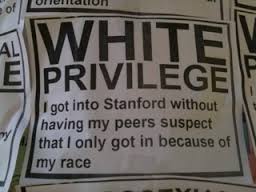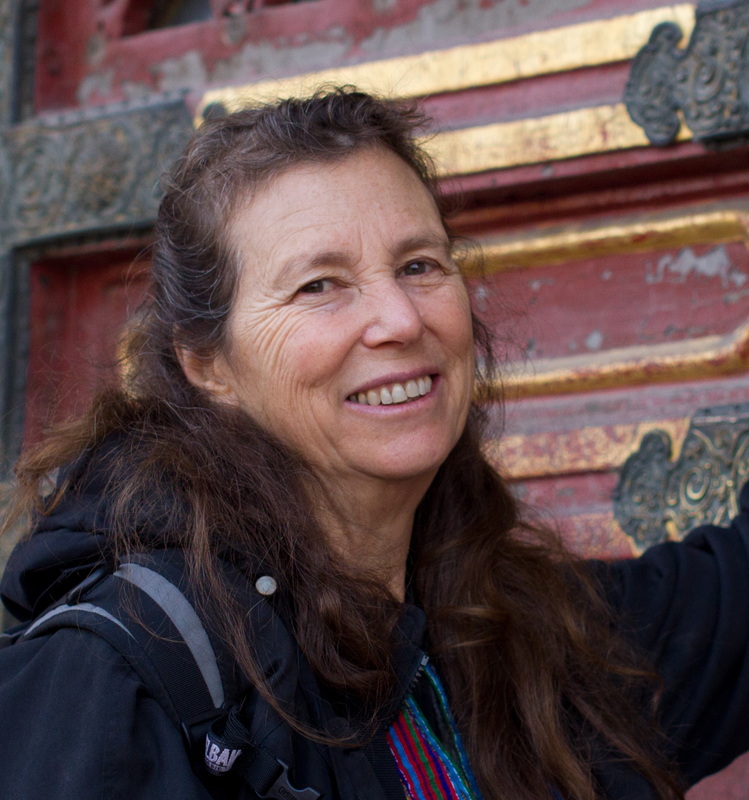
The concept of privilege refers to any advantage that is unearned, exclusive, and socially conferred. For example, white people are generally assumed to be law-abiding until they show some sign that they are not, while people of color are routinely assumed to be criminals or potential criminals until they show they’re not. One way to see this is through a survey in which respondents were asked to close their eyes and picture a drug dealer. When asked to describe what they saw, almost 95 percent mentioned a black person, even though the vast majority of drug dealers in the U.S. are white.
So, when it comes to being randomly stopped and frisked by police, anyone identified as ‘white’ has an advantage they did not earn and that is exclusive to whites. It is socially conferred in the sense that it depends on them being perceived in a particular way by the police—as ‘white’—before the advantage is given to them in the form of the assumption that they are not criminals.
It’s important to note that privilege does not guarantee good outcomes for the privileged group or bad outcomes for everyone else. A white person, for example, can work hard and have little to show for it, can be mistreated by the police without cause, be denied a job they’re qualified for. What privilege does is load the odds one way or the other so that the chance of bad things happening to white people as a category of people is much lower than for everyone else, and the chance of good things happening is much higher. Privilege is not something a person can have, like a possession, as in “Where’s mine?” Instead, it is a characteristic of the social system—like a rule in a game—in which everyone participates.
A system of white privilege, for example, is white-dominated, which means the default is for white people to occupy positions of power. White-dominance doesn’t mean that all white people are powerful, only that the powerful tend almost always to be white, and when a person of color occupies a position of power, that will be noted as an exception to the rule (as when Barack Obama is routinely identified as a black President and not just ‘the President’).
White-identification means that the culture defines ‘white’ people as the standard for human beings in general. People of color, for example, are routinely identified as ‘nonwhite,’ a term that doesn’t tell us what they are, but what they are not.
When a category of people is named the standard for human beings in general, the path of least resistance is to see them as superior, there being no other reason to make them the standard. Several things follow from this, including seeing the way they do things as simply ‘human’ or ‘normal,’ and giving more credibility to their views than to the views of ‘others,’ in this case people of color. White-identification also encourages whites to be unaware of themselves as white, as if they didn’t have a race at all. It also encourages whites to be unaware of white privilege.
White-centeredness is the tendency to put white people and what they do at the center of attention—the front page of the newspaper or magazine, the main character in the movie.
When you organize a society in this way, the result will be patterns of unearned advantage that are available to whites simply because they are socially identified as ‘white.’
A related consequence is patterns of oppression centered on people of color. Eighty-five percent of people who buy, sell, and use illegal drugs in the U.S., for example, are white, but 75 percent of the people in jail or prison for drug crimes are people of color.
The white privilege in this example, is the practice of the criminal justice system to overlook drug crimes committed by whites, while the corresponding oppressive consequence for people of color is the systematic selection of people of color for arrest, prosecution, and punishment.
______________
Copyright © 2013 by Allan G. Johnson. This article may be quoted, reprinted, or distributed for noncommercial purposes only and with an attribution to Allan G. Johnson, www.agjohnson.com, and this copyright notice.
Allan G. Johnson is a nationally recognized writer, novelist, and public speaker who has worked on issues of privilege, oppression, and social inequality for the past 45 years.
WHAT CAN YOU DO?
READ:
- White Privilege: Unpacking the Invisible Knapsack by Peggy McIntosh
- The Four I’s of Oppression
- Guidelines for Being Strong White Allies, by Paul Kivel, Adapted from, Uprooting Racism: How White People Can Work for Social Justice
- SURJ --a national network of groups and individuals organizing White people for racial justice
- Cracking the Codes: Joy DeGruy, A Trip to the Grocery Store (4 min.)
- What Are the Odds of a White Guy Going to Prison? (Video) 2 min
- Reverse Racism - Fear of a Brown Planet, Aamer Rahman

 RSS Feed
RSS Feed


